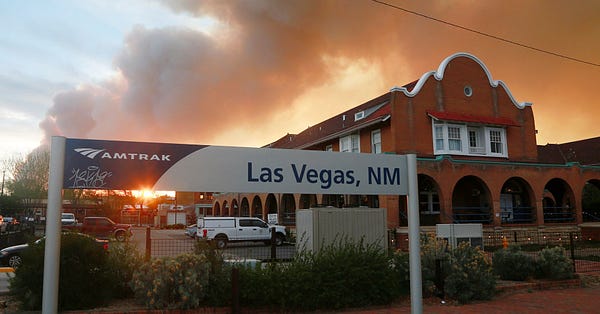Destabilized Saturday Edition #18
Republicans' authoritarian hero, monkeypox small talk, crackpots and American exceptionalism, and the new best pop song of the 2020s

Starting in 1990, at the age of just 27, authoritarian Prime Minister Viktor Orbán of Hungary led his party, Fidesz, in the National Assembly. From early on, he worked to shift Fidesz away from its center-right, classical liberalism toward right-wing nationalism. He was elected prime minister for the first time in 1998 at age 35, serving until 2002. He led the opposition until 2010, when he was reelected prime minister. Since then he has systematically undermined and debased Hungarian democracy. From Vox on the results of Orbán’s reign:
Elections there are free, …but they are unfair: The government controls the airwaves and media companies to such a degree that the opposition can’t get a fair hearing. Orbán’s party, Fidesz, stands up bogus opposition parties during parliamentary elections as a means of dividing the anti-Fidesz vote.
Hungary’s civil society looks free and vibrant on paper, but a patchwork of nonsensical regulations makes it nearly impossible for pro-democracy organizations to do their work. The economy seems to be growing, but a significant number of corporations are controlled by Orbán’s cronies.
An unending drumbeat of propaganda, from both official state outlets and the private media empires of Orbán allies, demonizes refugees and Muslims, warning of an existential threat to Hungarian society and culture — and touting the Orbán regime as the only thing protecting the country from an Islamic takeover. This trumped-up crisis serves as a legitimation tool for Fidesz’s authoritarianism, a pretext for the government to pass laws undermining its opponents.
The state of Hungarian democracy is directly relevant here at home because many of the most powerful figures in the Republican Party have embraced Orbánism and explicitly identified Hungary as a model to aspire to. So much so that the most important conservative event of the year, CPAC, is being held in Hungary right now. Orbán himself gave the opening keynote.
If this strikes you as deeply messed up, you’re right! Imagine a top liberal organization, whose annual conference is a must-attend event for every Democratic presidential contender, hosting their event in Cuba with Castro giving the opening address, and you’re in the ballpark.
I have a thousand swirling thoughts about this. About the inherent fragility of democracy (freedom of assembly and speech includes people being allowed to jam with authoritarians), the insidiousness of the combination economic inequality and stagnant social mobility, and, on a personal level, how disorienting it is to have the pillars of your worldview slowly crumble.
But this captures the core of how I’m feeling:

Orbán is bad, Hungary under Orbán is terrible, and the Republicans are telling us in words, deeds, and whack-you-over-the-head symbolism that they want to make the USA like Hungary. And yet, it apparently isn’t moving the needle of American public perception AT. ALL.
Wild.
My Work
Climate change, reverse network effects, and community decay risk
The latter point is so important I want to emphasize it again: If the community a home is in is knocked into a reverse networks effects downward spiral, that property risks losing significant value even if it, itself, in a vacuum, appears relatively safe.
Interesting Reads
The Biggest Potential Water Disaster in the United States
Every Delta-related water issue has been complicated by the ongoing Western drought. (Tree-ring analysis shows the past two decades were the driest in more than a thousand years.) Under ideal circumstances, surface water and groundwater are complementary resources: in dry years, increased groundwater pumping makes up for the lower surface flows, while in wet years heavy precipitation allows subterranean aquifers to recharge. But the drought has changed all that, by stressing all resources at once. It has also hugely increased the challenge of maintaining water quality in the Delta hub. As less water flows down the Sacramento from the north, controlling salinity inevitably requires reducing exports to farmers in the south. Those farmers, who are the biggest users of Delta water, feel forced, in turn, to pump more groundwater, which is rapidly becoming as scarce as snowpack in the mountains. (Parts of the San Joaquin Valley have sunk more than islands in the Delta.) Every problem makes every other problem worse.
Tweets of the Week



This song is awesome and fun (click or tap and listen):
Extreme Weather Watch
Greater Delhi covers roughly 570 square miles, less than half the geographic size of Rhode Island, and it has the same number of people as Texas.




Creeping Authoritarianism Watch

















